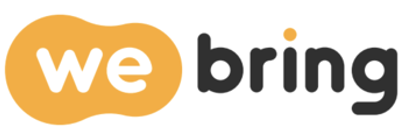Gaining internship experience in South Korea can be a valuable opportunity for international students. These internships can offer academic credit and hands-on work experience, while also serving as a potential gateway to full-time employment. But for many foreign students, accessing reliable information on internship openings can be difficult—especially when they’re unsure which companies accept international applicants. In this guide, we introduce key paths for finding internships in Korea, focusing primarily on programs connected to universities and supported by government initiatives.
1) University-Sponsored Internships: The Easiest Route Provided by Schools
(1) For Exchange or Enrolled International Students
Internship matching programs operated by universities—particularly through international offices—can serve as excellent entry points for foreign students. These typically take place during school vacations (summer and winter), allowing students to intern at Korean companies or research institutes. Some of these programs also offer academic credit. Internships range from short-term (4–8 weeks) to long-term placements (4–6 months).
(2) How the Program Works
Students receive a list of companies partnered with the university, submit applications, go through interviews, and begin the internship upon admission. While some companies offer a salary or training stipend, others may be unpaid. However, non-monetary benefits like dormitory housing and meal allowances can be included. A certain level of Korean language proficiency (or English in some cases) is typically required.
(3) Example: K University’s International Internship Program
For instance, K University’s international office offers a summer internship program each year, partnering with start-ups and cultural organizations based in Seoul. Students apply based on their major or interests, undergo interviews, and upon selection, engage in hands-on work for two months. After submitting a final report, participants earn three academic credits and receive a certificate. In some cases, students are even hired full-time by their host companies.

2) Government-Supported Internships: KOICA, Ministry Programs, and Local Governments
KOICA Internships and Exchange Programs
KOICA (Korea International Cooperation Agency) is mainly known for sending Korean volunteers abroad, but it also offers occasional exchange programs that international students—particularly those from developing countries—can participate in. While the names of these programs may vary, KOICA has initiated internships and training programs in Korea aimed at students from partner countries. If you’re interested in international development, be sure to check KOICA’s website regularly.
Industry and SME Ministry Support
Government departments such as the Ministry of Trade, Industry and Energy, and the Ministry of SMEs and Startups sometimes offer internships with pathways to employment for international students. These may be labeled as “Industrial Internships” or “Trade Internships” and often place students within small-to-medium enterprises (SMEs) or companies affiliated with trade associations. To apply, check the respective ministry websites or consult with your university’s international affairs office.
Local Government Exchange Programs
Some local governments, such as those in Seoul or Busan, run exchange programs inviting students from sister cities overseas. Participants intern at local companies or public organizations, and receive assistance for accommodation and living expenses. These programs often include cultural experiences as well. If you are from a sister city, it’s worth making a direct inquiry.
3) Pathways to Employment from Internships
1) Conversion to Full-Time Employment
Some Korean companies offer full-time positions after assessing an intern’s capabilities and adaptability. Startups may sponsor an E-7 visa, allowing the intern to transition to a full-time role, while large corporations may provide additional points during entry-level recruitment processes. International students should be prepared for potential visa changes (e.g., D-2 → E-7 or D-4 → E-7).
2) Showcasing Internship Accomplishments
Even if the internship doesn’t directly lead to a job offer, it can significantly strengthen your resume and portfolio when applying to other Korean companies. Experience in Korean workplace culture and operations is highly valued, often giving applicants an edge in interviews. Make sure to include specific projects and key takeaways in your cover letter.
4) How to Apply: Where to Find Internship Opportunities
University International Offices and Career Centers
The most direct route is to consult your university’s international office, student support division, or career development center. These departments often have exclusive access to program information and can guide you based on previous student experiences. Pay close attention to announcements and emails to avoid missing deadlines.
National Research Institutes and Public Institutions
Korea’s government-run research institutes (e.g., Korea Institute of Science and Technology, Korea Development Institute) and public organizations (KOTRA, Korea International Trade Association, KOICA) occasionally open internship positions for foreign students. Check the recruitment sections on their websites, or search on local job portals like Saramin and JobKorea.
Private Internship Placement Agencies
Some private companies arrange internship programs in Korea for a fee. These packages may include internship placement, accommodation, and cultural activities. However, as these are paid services, always verify the agency’s credibility and assess whether the internships offered are truly valuable.
5) Success Story: International Student N Lands a Job After Interning in Korea
Background of Student N
Student N, originally from Southeast Asia, was majoring in Korean language and had achieved TOPIK level 5. Upon joining a Korean university as an exchange student for a language program, N discovered a government-funded internship opportunity (linked with the Ministry of Trade, Industry and Energy) provided through the school. After submitting documents and completing an interview, N was accepted for an internship at a trade company in Seoul.
Internship Experience
For three months, N managed trade documentation, handled English-Korean email communications, and liaised with overseas clients. Thanks to N’s strong Korean language skills, in-person collaborations with colleagues were smooth, and the company saw potential for expanding into N’s home market. In the final week of the internship, the company offered N a full-time position. N successfully transitioned from a D-2 (student) visa to an E-7 (employment) visa and began working full-time. N remarked, “Without the internship, I would never have been given this job opportunity. I’m so glad I didn’t miss out.”
Conclusion: University and Government Internship Programs Are Open to International Students
Finding an internship in Korea isn’t always easy, but leveraging university-affiliated and government-sponsored programs makes the process much more manageable. If you’re currently enrolled, your school’s international office or exchange division can connect you with credit-based internships offering professional experience across various industries. Don’t overlook government-run internships hosted by ministries (e.g., MOTIE, KOICA) or local municipalities; these are transparent, sometimes include living stipends, and reduce your financial burden.
Of course, language skills (Korean and/or English) play a critical role throughout the process, and applicants must prepare strong documents and interviews. But with the right approach, internships can open doors to meaningful work experience, career opportunities, and enhance your professional network. Ultimately, these programs serve as one of the best ways to settle into life—and work—in Korea.
We hope this guide has provided helpful and detailed information on how to secure an international student internship in Korea. Explore the programs that align with your university, region, and major. Furthermore, take initiative in preparing your application documents and interviews. Through an internship, you can experience Korean workplace culture first-hand and potentially take the next step toward a full-time job or even launching your own business in Korea.

K-Name Studio: Create your perfect Korean name based on your personality and style.
What’s My K-Beauty Personal Color?
WeBring Service : Provides personalized services to foreigners living in Korea
Exclusive offer: Introducing foreign car rental in Korea, WeBring-SoCar

